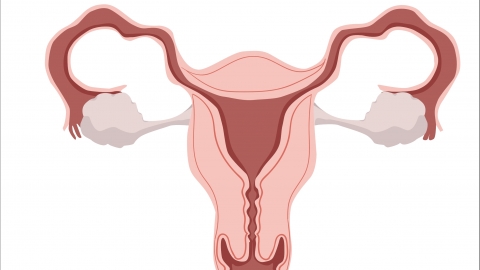What causes cold uterus (gong han)?
Generally,宫寒 (gōng hán, cold uterus) may be caused by improper lifestyle habits, malnutrition, deficiency of both qi and blood, uterine prolapse, or intrauterine adhesions. Symptomatic management is required through general treatments, medication, or surgical interventions. If symptoms are severe, prompt medical consultation and examination are recommended for targeted treatment. Detailed explanations are as follows:

1. Improper Lifestyle Habits
Long-term exposure to cold environments, wearing thin clothing, setting air conditioner temperatures too low for comfort, frequent use of cold water, and prolonged residence in cold places are all不良 lifestyle habits that may allow cold pathogens to invade the body, thereby causing宫寒. It is recommended to improve lifestyle habits, maintain warmth, avoid prolonged exposure to cold environments, appropriately adjust air conditioner temperatures, and reduce the use of cold water.
2. Malnutrition
Long-term picky eating, preference for certain foods, or an unbalanced diet can lead to nutritional deficiencies in women, causing insufficient essential nutrients and energy in the body. This may affect normal metabolism and blood circulation. When the uterus does not receive adequate nutrition and warmth,宫寒 may develop. It is recommended to improve dietary habits by maintaining a balanced and diverse diet, and consuming more protein-, vitamin-, and mineral-rich foods such as lean meat, eggs, and milk.
3. Deficiency of Both Qi and Blood
Deficiency of both qi and blood refers to a pathological condition characterized by simultaneous qi deficiency and blood deficiency. Qi deficiency results in the loss of the body's propelling and controlling functions, while blood deficiency leads to the loss of nourishing and moistening functions. When both qi and blood are deficient, the uterus cannot receive sufficient nourishment and warmth, which may lead to宫寒. Symptoms may include pale and lusterless complexion, palpitations, insomnia, and irregular menstruation. Treatment may include traditional Chinese medicine prescriptions such as Bazhen Tang (Eight Treasures Decoction), Guipi Tang (Tonify Spleen and Nourish Heart Decoction), or Zhigancao Tang (Fried Licorice Decoction), as directed by a physician.
4. Uterine Prolapse
Uterine prolapse mainly results from damage to pelvic floor tissues during pregnancy and childbirth, increased long-term abdominal pressure, or poor development of pelvic floor tissues. This condition can pull the tissues and blood vessels around the uterus, impairing blood circulation and causing宫寒. Symptoms may include a sensation of heaviness in the lower abdomen, urinary incontinence, and discomfort during sexual intercourse. Mild uterine prolapse can be improved through pelvic floor muscle exercises and the use of pessaries. Severe cases may require surgical interventions such as uterine suspension or hysterectomy to restore the uterus to its normal position and function.
5. Intrauterine Adhesions
Intrauterine adhesions refer to poor healing after endometrial injury, leading to scar tissue formation, changes in uterine cavity morphology, and reduced uterine cavity capacity. This condition can affect uterine blood circulation and temperature regulation, thereby causing宫寒. Symptoms may include reduced menstrual flow, irregular menstrual cycles, and infertility. It is recommended to undergo surgical treatment such as laparotomy or hysteroscopic surgery under a physician's guidance.
Women are advised to pay attention to their physical health in daily life, maintain good lifestyle habits, eat a balanced diet, and engage in moderate exercise, which may help alleviate symptoms.





